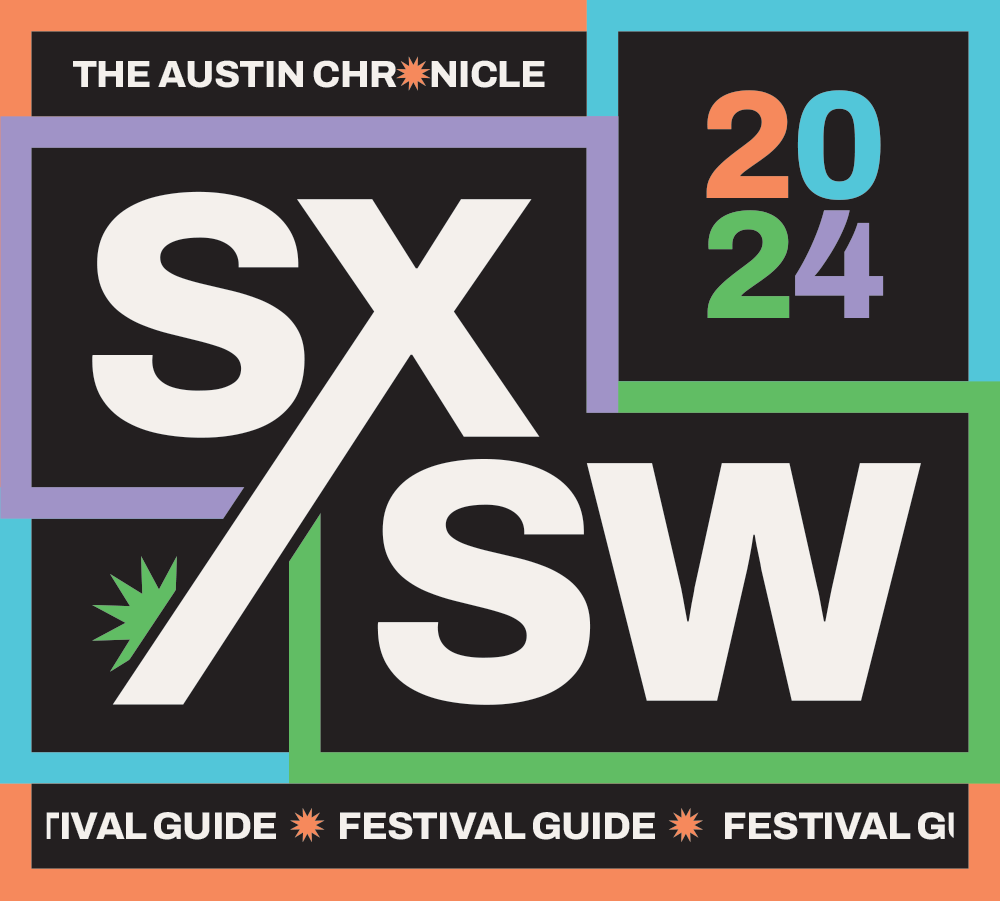Experts at SXSW Debate if AI Will Save Us ... or Destroy Us
Scads of panels ponder a rosy or bleak future
By Brant Bingamon, Fri., March 8, 2024
In May of last year, a man recognized as one of the “godfathers of artificial intelligence,” Geoffrey Hinton, left his job at Google to warn the world that the technology he is partly responsible for advancing could well destroy humanity. The warning was charming in its simplicity.
“I’m just a scientist who suddenly realized that these things are getting smarter than us,” Hinton told CNN. “If it gets to be much smarter than us, it will be very good at manipulation, because it will have learned that from us. And there are very few examples of a more intelligent thing being controlled by a less intelligent thing.”
It was a surprisingly comprehensible analysis, and other experts agreed. Several hundred joined Hinton in signing a declaration from the Center for AI Safety: “Mitigating the risk of extinction from AI should be a global priority alongside other societal-scale risks such as pandemics and nuclear war.”
But that was 10 months ago. No companies seem to have paused their research. They’re stampeding to incorporate AI into their businesses. The frenzy is reflected in the myriad related panels at this year’s SXSW: There will be discussion of AI and robots, AI and music, AI and cancer, AI and astrophysics.
Many of the panels announce themselves with exuberant optimism. The promo for Beyond ChatGPT: What Will the Next Generation of AI Bring? promises an exploration of “advancements and applications being developed to address society’s most urgent needs.” The panel titled Artificial Intelligence & Spirituality: A Temporal Odyssey takes it higher, vowing to uncover “how AI might reveal existential truths, offering a modern parallel to Galileo’s earth-shifting insights.” It will also consider “consciousness, intelligence augmentation, and our evolutionary trajectory through a synergy of the esoteric and the algorithmic, inspiring questions about our place in the cosmos.” We’re always a bit wary of “synergy,” but the clear takeaway is that our place in the cosmos is about to change.
Until recently, scientists speculated that AI wouldn’t surpass human intelligence for several decades. But after this year’s advances they think the systems could be smarter than us within a few years – or next year. What might that look like?
Marek Kowalkiewicz, author of The Economy of Algorithms: AI and the Rise of the Digital Minions and a presenter at the panel by the same name, said we can see a harbinger of the changes by looking at the decisions AI is already making, decisions that, in some cases, humans do not review because the algorithms that determine them are too complex for a human mind to analyze.
“Algorithms decide which universities we get admitted to, like in the case of algorithms used by the UK’s Office of Qualifications and Examinations Regulation,” Kowalkiewicz said. “They advise judges on whether we are at risk of reoffending, impacting the judges’ decisions, like the algorithm called COMPAS. On a more positive note, some of them help us contest fines, shop for products in high demand, and even do some of our work for us.”
That work may soon expand to taking over professions like journalism and photojournalism. In AI News That’s Fit to Print, Zach Seward, editorial director of The New York Times, will discuss “whether high-quality journalism is destroyed by the technology.” Another panel with journalists from CNN and The Washington Post also examines the usurpation of the free press, asking, “How can these companies manage the influx of AI-generated images and video that are currently impossible to detect ...? Could AI images swing an election? Incite violence?”
The obvious answer is yes. It’s widely accepted that AI will further erode the concept of a shared reality – or, to employ a word that humans like, the truth. The promo for AI and the Future of Truth, with tech expert Gary Marcus, declares that truth is “in doubt” and describes its doppelganger, “the amplified, re-mixed, digitized, deep-faked world of digitally manipulated Truth.”
But for the record, Marcus does not believe AI will kill us. “I doubt that AI will literally lead to the extinction of humans – we are a resilient species, geographically and genetically diverse,” he told us. ”But it could lead to catastrophes like accidental war, because of its unreliability, or the end of democracy, through AI-generated disinformation.”
Okay, comforting, but let’s focus on the immediate issue of disinformation. Americans already consume lots of that. It’s bad for democracy, and, naturally, there’s a panel about it, which asks, “How do we protect our democratic institutions, make sure voters receive accurate information, and ensure American Democracy survives in the years to come?”
Perhaps a convincing answer will come. And perhaps some of the scientists who make predictions about AI are correct that, though it will soon be more intelligent than us, it will never be able to process the inherent ambiguity of the perceptible world the way humans do so easily. Maybe it will stay in “alignment” with humans and only amplify our beliefs and biases. Except that’s not great either.
“One of the biggest threats posed by AI is the ability for this technology to further perpetuate discrimination and division by upholding societal infrastructures that are not built on equity and inclusion,” Alisa Valentin told us. Valentin will be part of a panel titled Beyond the Hype: Policy for Keeping AI in Check, and argues that the government needs to get to work regulating AI. “We should all be mindful that AI can be used to sow discord, but it can also be beneficial for improving health care outcomes and increasing efficiency,” Valentin said. “We need our policymakers to actively work to get support from technical experts to put guardrails around this rapidly developing technology.”
AI Discussions at SXSW
Economy of Algorithms: AI and Rise of the Digital Minions
Monday 11, 10am
Austin Convention Center, Room 10AB
AI and the Future of Truth
Monday 11, 2:30Pm
The Thompson Hotel Austin, Red River Ballroom
Beyond the Hype: Policy for Keeping AI in Check
Thursday 14, 11:30am
Hilton Austin Downtown, Salon C












